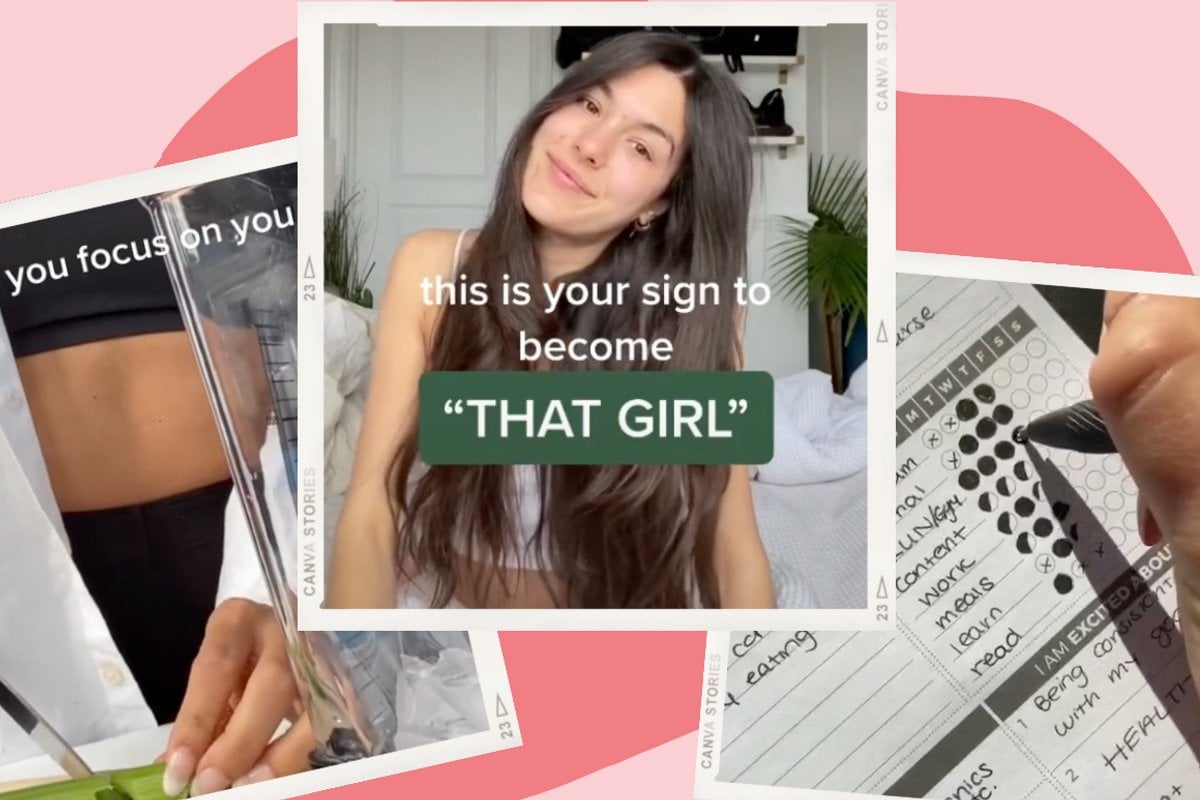
'That girl' wakes up at 5am. Even on weekends.
'That girl' works out twice a day, once before 7am, and once donned in an expensive matching activewear set. Usually doing yoga, of course.
'That girl' has clear skin, her body is slim and tan, and she ~journals~.
But that's not all.
She's professionally successful. She probably works overtime in a corporate job fuelled by protein smoothies and goal-setting.
Not so overtime though, that she doesn't have a moment spare to dive into a self-help book before bed.
Watch: The 5 Types of morning people. Post continues below.
If you're a woman who's been on TikTok in the past few months, chances are you've come across 'that girl'.
No, she's no one person.
In fact, she's nothing more than a vague concept, stemming from an elusive representation of health and wellness.


Top Comments